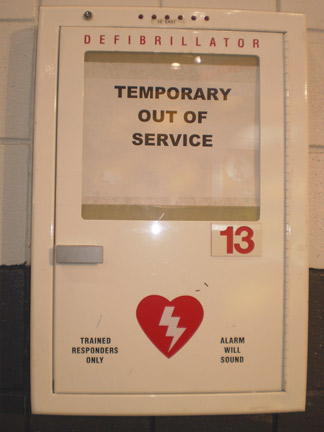Over at RedState, Brian Darling argues that the Food and Drug Administration’s decision to revoke its approval of the drug Avastin for use in late-stage breast cancer patients amounts to dreaded health care “rationing” brought on by (what else?) “Obamacare.” Darling isn’t alone in his pro-Avastin crusade—the Wall Street Journal editorial board has been harping on this, too. They’re both wrong. Avik Roy, a right-wing policy writer, did a good job of explaining why last month:
The panel’s new recommendation came on the heels of new data showing that Avastin did not extend the survival of patients with advanced breast cancer. (In cancer trials, the length of a patient’s life on a given treatment is the accepted gold standard for measuring a treatment’s effectiveness.) In the Avastin trial, called AVADO, patients treated with placebo and Taxotere, another cancer drug, lived for 31.9 months on average; whereas patients treated with Avastin and Taxotere lived for 30.8 months at a low Avastin dose and 30.2 months at a high Avastin dose. Understandably, the FDA’s advisory committee saw this data as evidence that Avastin didn’t offer a real benefit to breast cancer patients.
[…]
[W]e can’t forget that one of Avastin’s principal side effects is financial: a year’s worth of the drug costs between $80,000 and $100,000.
The real problem is this: if the government is responsible for paying for our health care, the government is entitled, if not obligated, to decide how to spend its money most effectively. If we don’t want the government to be making these decisions for us, then we need to pay for our own medicines. We can’t have it both ways.
I know RedStaters may not believe the “liberal media” when it reports that Avastin is an incredibly expensive drug that doesn’t work particularly well on late-stage breast cancer. But maybe they’ll believe Roy, who also writes for the National Review. Read the whole thing.














